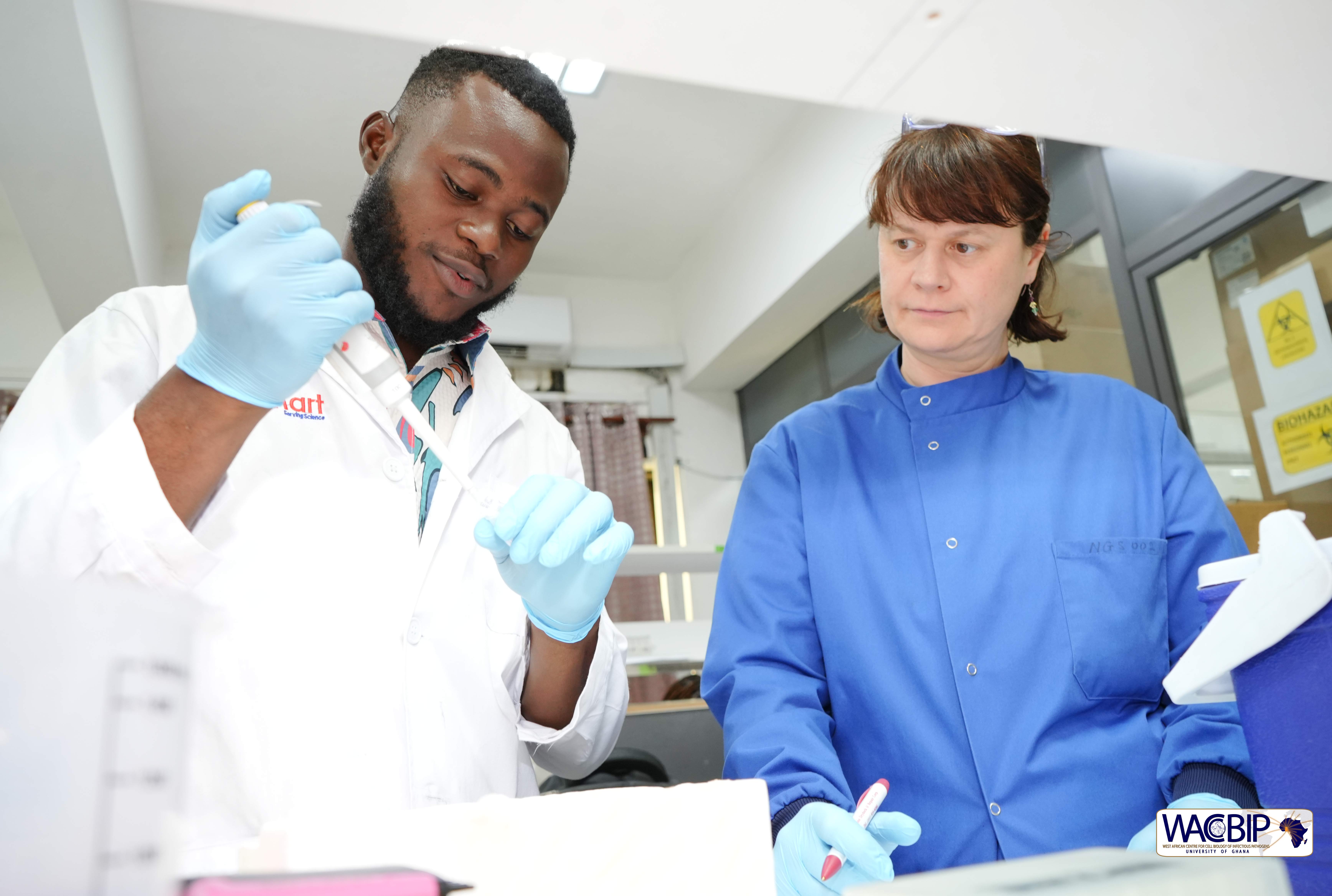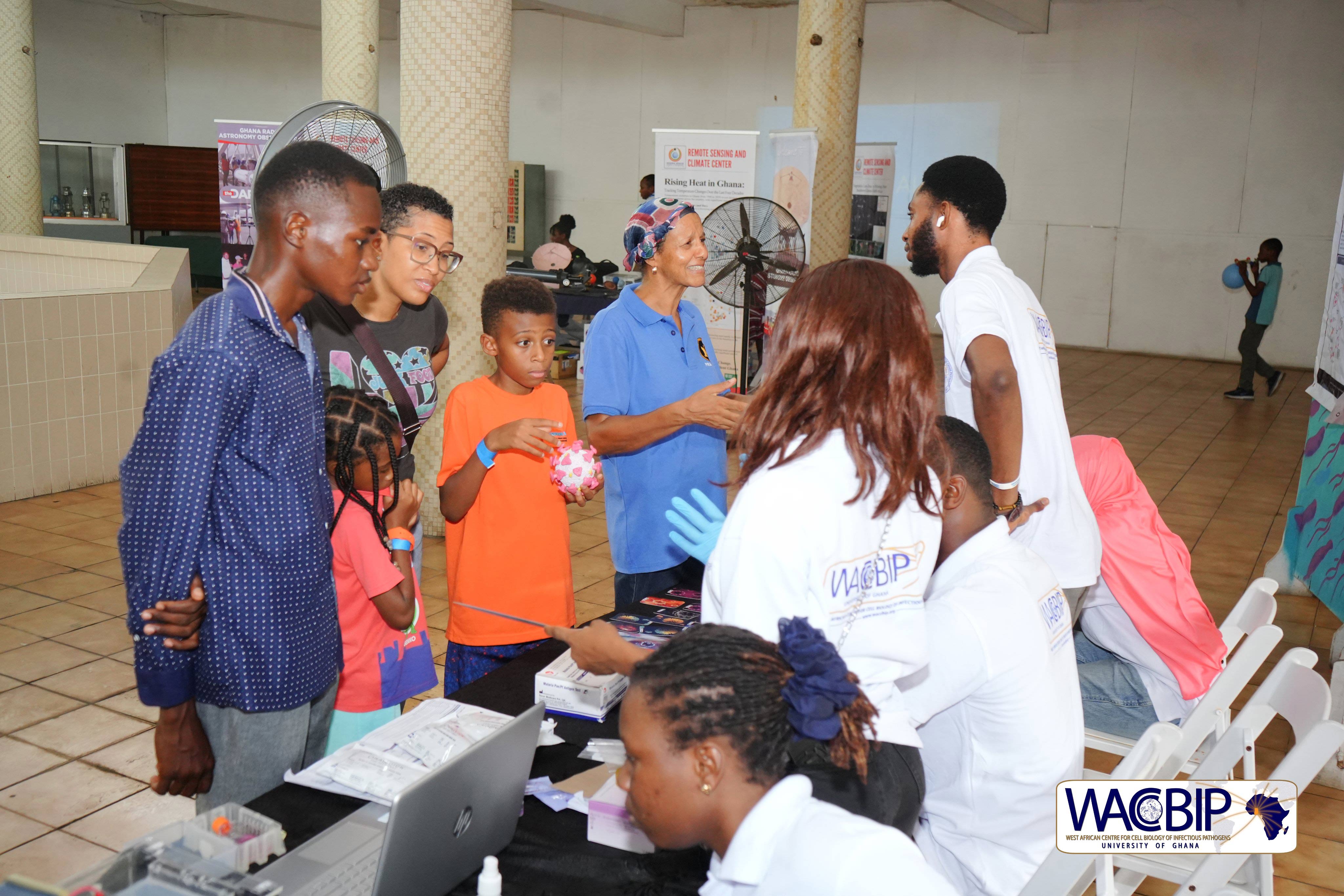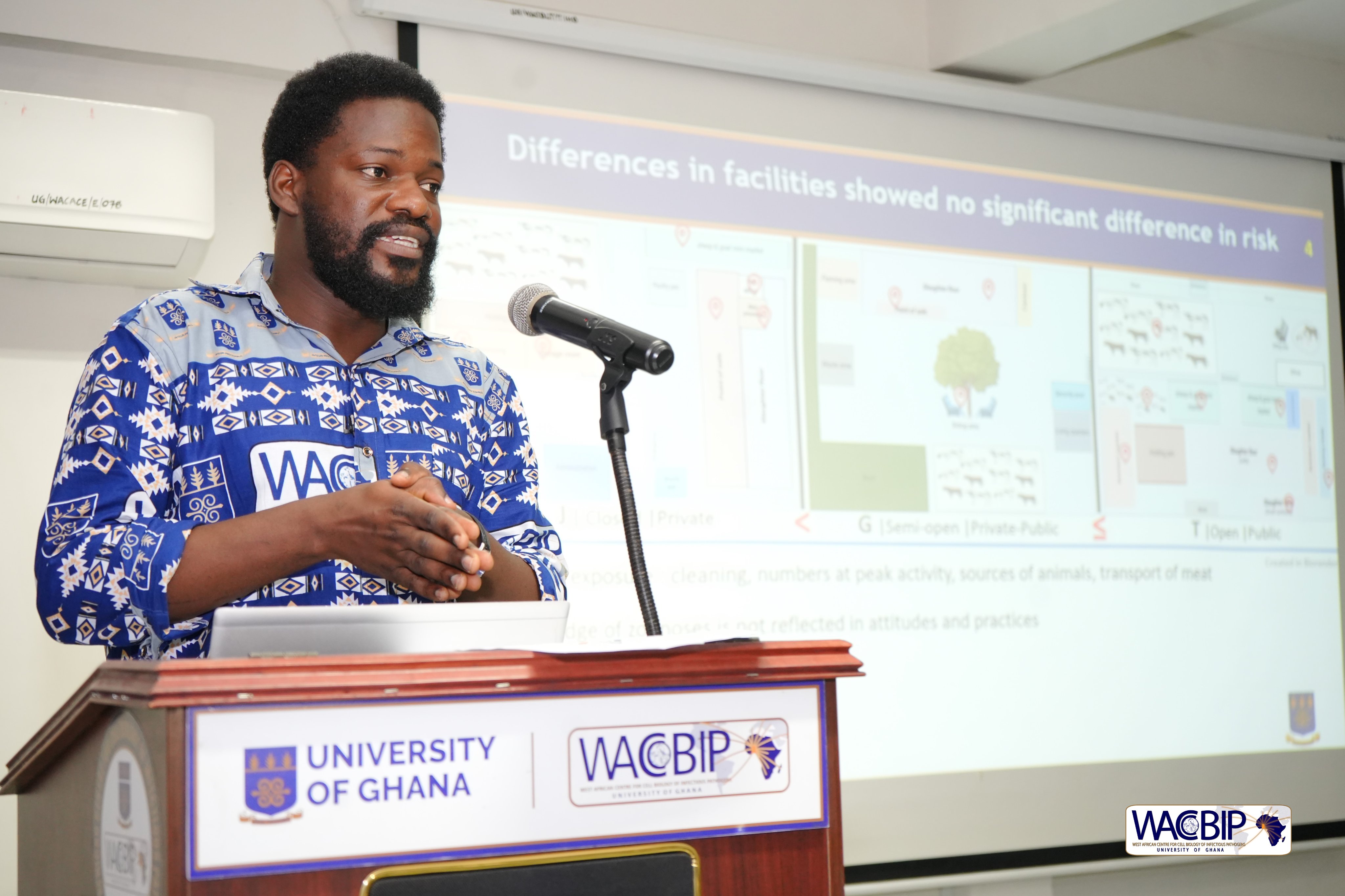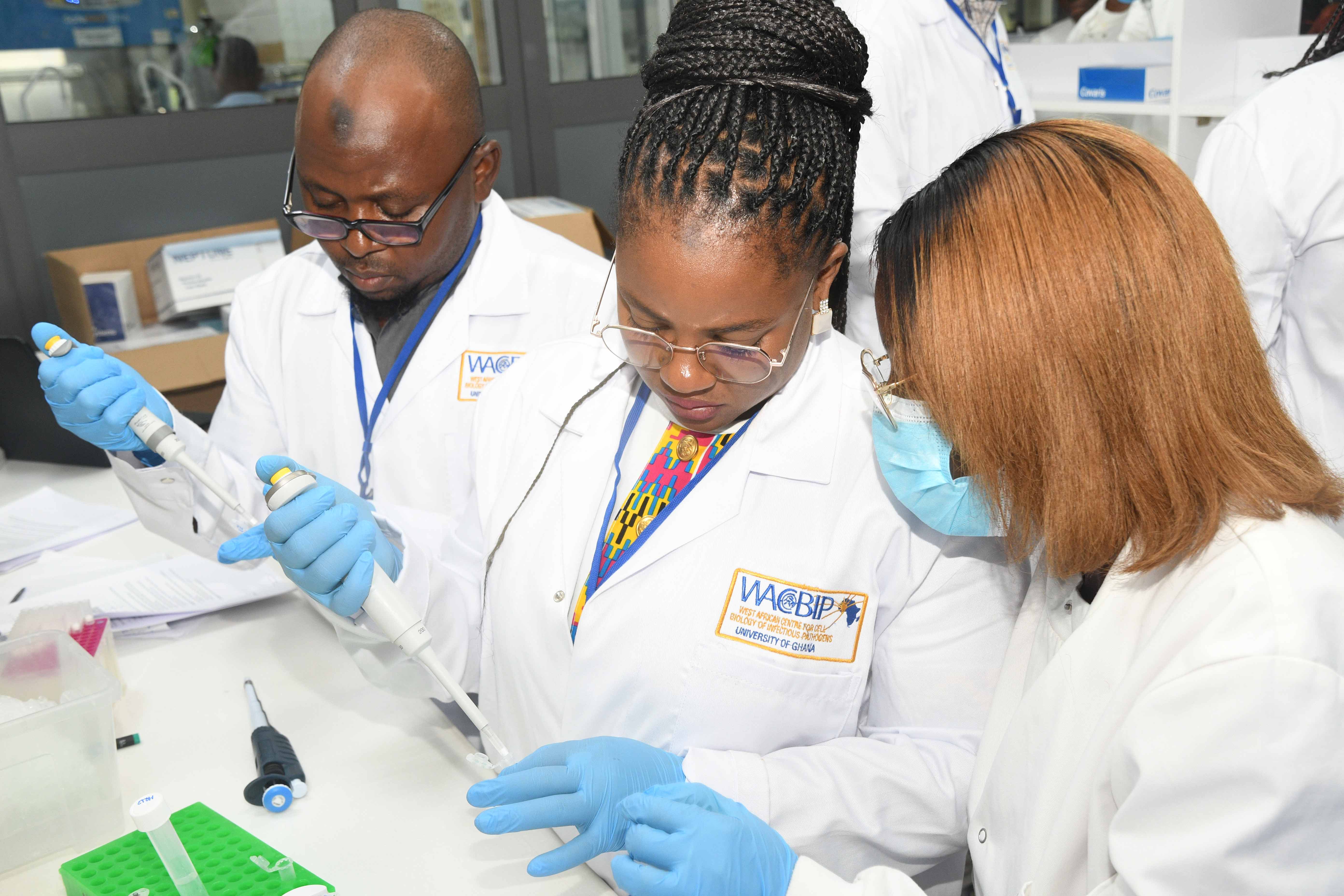Doctoral Programmes
Part of our mission is to train successive generations of scientists and we place great value on providing high quality postgraduate training through our four-year PhD programmes in Biochemistry and Molecular Cell Biology of Infectious Pathogens. Courses are offered primarily at the Department of Biochemistry, Cell and Molecular Biology at the University of Ghana, with opportunity for short study at partner institutions worldwide.
Overview
We prioritise intensive research and pedagogic training that covers methodology, rigorous evaluation of experimental results, and skills training in research administration, teaching, teamwork, organisation, and presentation. We place value on self-driven learning and thought, requiring a high level of critical thinking and assessment of scientific data.
You will have access to some of the best laboratories in the sub-region, equipped with state-of-the-art facilities, in an environment that is optimised for conducting cutting-edge research. We offer our PhD fellows the unique opportunity to be mentored by some of the brightest scientific minds at the University of Ghana and from our international partner institutions.
The PhD in Biochemistry programme is designed to train highly skilled biochemists and equip them with the necessary skills to complete relevant research directed towards making tangible contributions to national development. The programme will prepare students to take up research leadership roles in industry, government, institutions of higher learning, and health research organisations. Students are also mentored and prepared to compete for global research grants and publish in high-ranking Science research journals.
This four-year programme is split into two parts: one year of didactic coursework, and three years of advanced research work. Coursework includes core subjects that incorporate discussions of Science and society, special topics in Science, scientific communication, and research methodology. Additional course material includes elective options in laboratory rotation, advanced topics in bioinformatics, and applications of biotechnology. Students will also have the option to select among a broad range of advanced topics in biochemistry including bacterial and viral infections, eukaryotic infections, host and pathogen genomics, immune response mechanisms, and signal transduction.
Click here to download full course descriptions
Requirements
Admission
Candidates with a relevant Master’s degree in Biochemistry or a related discipline, who have a strong academic record and demonstrable academic acuity required for the successful completion of a PhD will be considered for admission. Candidates with a good first degree (at least 2nd class lower) in a relevant discipline, including Biological or Physical Sciences may also apply into the PhD MCBI program. However, such students will initially enter the Master’s programme, and be upgraded after the first year, subject to obtaining a cumulative GPA of 3.5 or above.
Candidates are also expected to pass a selection interview before being admitted into the programme.
Duration
The programme would normally take a minimum of four years (full-time study) or six years (part-time study) to complete.
Graduation
To be awarded a Doctor of Philosophy degree in Biochemistry, a candidate must have taken and passed between 18 to 24 credit hours of coursework, taken part in 12 credit hours of departmental seminars, and produced and successfully defended a thesis of original research work.
Candidates may visit the University of Ghana website for information on the application process.





